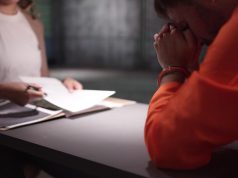
In an era where images, audio, and video can be manipulated with stunning precision, the legal profession is confronting an existential challenge: how to navigate a landscape increasingly shaped by deepfakes, misinformation, and digital deception. While the legal system has long grappled with perjury and forged documents, today’s technology presents threats at an unprecedented scale and sophistication. For attorneys, the implications are not only procedural—they’re deeply ethical.
This post explores how deepfake technology and misinformation campaigns are reshaping evidentiary standards, legal ethics, and courtroom strategy—and what legal professionals must do to uphold justice and maintain credibility.
What Are Deepfakes and Why Are They Dangerous?
Deepfakes are synthetic media created using artificial intelligence to superimpose or manipulate a person’s likeness in audio or video form. What makes them dangerous is not just their realism, but their accessibility: any amateur with a decent laptop can now generate convincing fake videos of real people.
This poses serious concerns for courts, which have traditionally relied on video and audio recordings as highly persuasive evidence. A fake confession video, for example, could derail a case before it even gets to trial. Worse yet, victims—particularly in cases involving sexual assault or harassment—could be silenced by doctored footage designed to discredit or intimidate them.
According to a report by Brookings Institution, deepfakes represent a growing national security and legal threat, especially when used to manipulate public perception or obstruct justice.
How Courts Are Responding to Deepfake Evidence
While there’s no unified legal doctrine for handling deepfakes, courts are beginning to adapt. Some judges are requiring higher standards of digital authentication and expert testimony in cases involving video or audio evidence.
The Federal Rules of Evidence, particularly Rule 901, already mandate that proponents of digital evidence must demonstrate its authenticity. However, deepfakes are forcing attorneys to go beyond simple metadata checks and into the realm of forensic media analysis.
Legal technology firms are now offering deepfake detection services, using tools like reverse video search and neural network scans to test the veracity of media. Even so, the detection arms race is ongoing, and legal professionals must stay vigilant.
Ethical Responsibilities for Attorneys in a Deepfake World
Attorneys have a duty under the ABA Model Rules of Professional Conduct to avoid presenting false evidence and to conduct a reasonable investigation of all materials they introduce in court. Rule 3.3 specifically obliges lawyers not to offer evidence they know to be false.
In the age of deepfakes, the threshold for what constitutes a “reasonable investigation” is rising. Attorneys must now consider:
- Verifying the chain of custody for digital evidence
- Consulting digital forensics experts when authenticity is in question
- Educating themselves on emerging threats related to misinformation
Failing to do so not only jeopardizes a client’s case—it risks disciplinary action and damage to the attorney’s reputation.
You can read more about these evolving duties in the ABA’s Formal Opinion 498, which addresses ethical obligations related to remote legal practice and digital communications.
Victims of Digital Defamation and Sexual Exploitation
One of the most disturbing applications of deepfakes is in the realm of non-consensual pornography and digitally manipulated sexual content. Victims—particularly women—have found their faces superimposed onto explicit videos and shared without their consent, often as a form of retaliation or blackmail.
This becomes especially problematic in settings like cruise ships, where jurisdictional ambiguity, limited onboard investigative resources, and international waters complicate the pursuit of justice.
Survivors of sexual assault aboard cruise lines may already face obstacles in reporting and prosecuting crimes due to corporate resistance or lack of evidence. Deepfakes only increase the complexity, enabling perpetrators to discredit victims or claim manipulated evidence in their defense.
As these cases become more frequent, legal counsel must be prepared to distinguish between authentic and fabricated media, and to vigorously protect the rights of survivors.
Upholding Justice in a Digital Minefield
The legal profession is under pressure to adapt—not just technologically, but ethically. As AI-generated misinformation becomes more common, attorneys must act as guardians of truth, sharpening their digital literacy and staying alert to the evolving risks of manipulated media.
This means not only defending against deepfakes in court but advocating for clearer standards, more robust authentication tools, and stronger victim protections under both state and federal law.
If you or a loved one has suffered from a sexual assault during a cruise, particularly in a situation involving disputed or questionable digital evidence, contact our cruise ship rape lawyers for confidential legal guidance. These cases demand experienced legal advocates who understand both maritime law and the sophisticated tactics used to conceal the truth.






